Farmers, Growers, Packers, and Farmers Markets
Donate Crops Request Info Row by Row Project Home Gardens
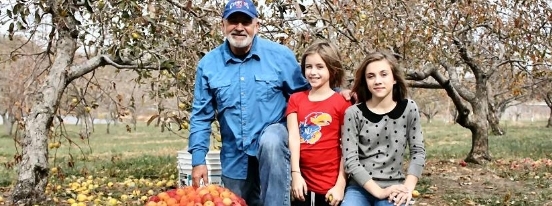
When you hear yourself saying, “It’s a shame this has to go to waste,” that’s when you should call the Society of St. Andrew (SoSA). If you have produce that you will be unable to sell, or that will simply be left to rot in fields or will be sent to a landfill, then we need to talk!
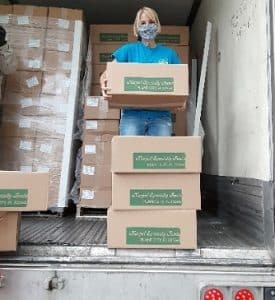 SoSA has nationwide partnerships with food banks, food pantries, churches, civic organizations, and other nonprofits and successfully distributed more than 2 million pounds of food through the USDA Farmers to Families program.
SoSA has nationwide partnerships with food banks, food pantries, churches, civic organizations, and other nonprofits and successfully distributed more than 2 million pounds of food through the USDA Farmers to Families program.
Our goal is to do what works best for you and your business. One of SoSA’s primary goals is to make charitable food donation a frustration-free process for the many farmers, growers, and providers who generously share when they have unsold or unused food.
Partner with SoSA— let our team of trained individuals handle the logistics of getting your fresh, but unmarketable produce to feeding agencies and families in need.
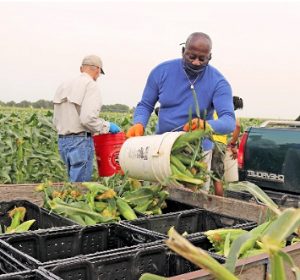 All you have to do is call, text, or email the coordinator for your region. (Or just click the “Donate Crops” button above and we will contact you.)
All you have to do is call, text, or email the coordinator for your region. (Or just click the “Donate Crops” button above and we will contact you.)
In SoSA’s 40+ years of experience, we’ve learned that when it comes to their farms, farmers know best. We follow your instructions about the collection methods, times, locations, and even the agencies you prefer to support or avoid.
Also, on-site SoSA staff have completed the Produce Safety Alliance’s Grower Training course to ensure the latest education regarding produce safety, the Food Safety Modernization Act (FSMA) Produce Safety Rule, GAPs, and food safety.
This ensures at least one supervisor or responsible party leading an event on/near your farm has successfully completed food safety training at least equivalent to that received under the standardized curriculum recognized as adequate by the FDA.
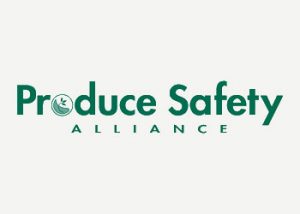 This training covered topics related to:
This training covered topics related to:
- Produce Safety
- Worker Health and Hygiene
- Soil Amendments
- Wildlife, Domesticated Animals, and Land Use
- Agricultural Water
- Postharvest Handling
- Sanitation
- How to Develop a Farm Food Safety Plan
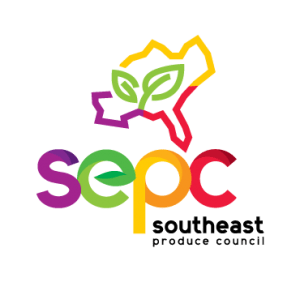 SoSA is also privileged to work alongside The Southeast Produce Council (SEPC) each year at their food shows to prevent food waste and feed hungry people using surplus fruits and vegetables.
SoSA is also privileged to work alongside The Southeast Produce Council (SEPC) each year at their food shows to prevent food waste and feed hungry people using surplus fruits and vegetables.
The SEPC has a longstanding history of richly supporting produce farmers, suppliers, buyers, and consumers in the Southeast.
See below for some additional reasons, hundreds of farmers choose SoSA as their nonprofit distribution partner every year:
- We track exactly which agencies receive the produce you donate and where it is distributed.
- We understand the importance of food safety and traceability standards.
- We have 40+ years’ experience, working with thousands of growers across the United States.
- SoSA’s network has distributed more than 850 million pounds of healthy fruits and vegetables across the country.
- We protect you, the grower, with waivers, insurance, and best practices.
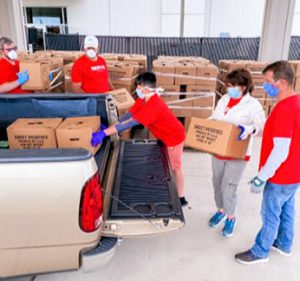 You are protected from liability concerns through the Bill Emerson “Good Samaritan” Food Donation Act, passed by the U.S. Congress in 1996. We, as a nonprofit, ensure that you and the recipients are 100% protected from liability. (Our reporting system allows complete traceability through the donation process.)
You are protected from liability concerns through the Bill Emerson “Good Samaritan” Food Donation Act, passed by the U.S. Congress in 1996. We, as a nonprofit, ensure that you and the recipients are 100% protected from liability. (Our reporting system allows complete traceability through the donation process.)
It doesn’t matter where the food is located, so long as it’s good to eat.
-
Produce still in the field or orchard after your harvesters have finished? No Problem.
-
End of season at the U-Pick farm or Agritourism business? SoSA can handle it.
-
Produce graded out at the packing house? SoSA can handle that too.
-
Truckload rejected at warehouse, distribution center, or grocery store? Call 434-851-3442.
-
Produce on a truck involved in an accident? Same, call 434-851-3442 today.
All produce you give to the Society of St. Andrew is distributed freely, always without any charge. Our operating expenses are covered by donations from individuals, churches, civic organizations, and grants. You will receive an end-of-year statement acknowledging the quantity and variety of your charitable donations. Many growers use these statements when filing their taxes.
Have Crops to Donate? Fill out this form.
When you fill out this form, your contact information goes to the coordinator for your state. That person will get back to you within 24 hours.

